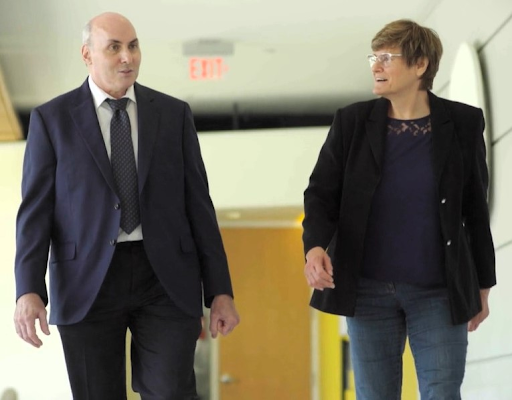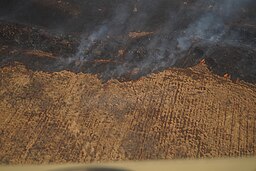According to a new report from the U.N.’s Intergovernmental Panel on Climate Change, the world faces irreversible damages from global warming caused by human activity.
“Continued emission of greenhouse gases will cause further warming and long-lasting changes in all components of the climate system, increasing the likelihood of severe, pervasive and irreversible impacts for people and ecosystems,” according to the report.
The report synthesized earlier findings from the IPCC to make one, relatively brief document outlining the possible consequences.
“Science has spoken,” U.N. Secretary-General Ban Ki-moon said. “There is no ambiguity in their message. Leaders must act. Time is not on our side.”
The studies say that global warming could easily have detrimental consequences reaching outside the realm of environmental damage. Although much of the climate change debate has centered on a debate of economy vs. environment, this report says the two are intertwined.
“Climate change impacts are expected to exacerbate poverty in most developing countries and create new poverty pockets in countries with increasing inequality, in both developed and developing countries,” it states.
According to the report, global warming and climate change could have unprecedented effects on economics. The changes would also have a disproportionately large effect on poorer populations around the world.
“Climate-related hazards affect poor people’s lives directly through impacts on livelihoods, reductions in crop yields or the destruction of homes, and indirectly through, for example, increased food prices and food insecurity,” the synopsis report said.
Given the results from the midterm elections in the U.S., President Obama may have difficulty passing climate change agreements through the Senate. A few Republicans have already expressed their doubts on the IPCC’s report.
“Similar to previous reports, the latest findings appear more political than scientific,” said Congressman Lamar Smith from Texas. “People are tired of the repackaged rhetoric. It’s time to stop fear mongering and focus on an honest dialogue about real options.”
“(Obama plans to) forge a sweeping international climate change agreement to compel nations to cut their planet-warming fossil fuel emissions, but without ratification from Congress,” according to an Aug. 26 New York Times article. Instead, the treaty will identify the nations most responsible for global warming and pressure them into action without using legal obligation.
“I don’t think we’re going to get a huge, all-encompassing international solution that has the same success (at the global level) as we’ve seen (at the local level),” said Kyle Dell, assistant professor of political science and co-chair of environmental studies. “It has to be a much more grassroots, bottom-up approach to global warming.”
North Carolina may feel the consequences of climate change even more than other states.
A 2008 report from AEI-Brookings Joint Center for Regulatory Studies report estimated that North Carolina would see a 22.6 percent loss in agricultural profit over the next century, solely because of climate change, while the coastal areas of North Carolina have already seen changes.
The state could eventually experience dramatic changes from global warming if land ice continues to melt.
“There is high confidence that sustained global mean warming greater than a threshold would lead to the near-complete loss of the Greenland ice sheet over a millennium or more, causing a sea-level rise of up to 7 meters,” the U.N. report said.
While the U.S. and the world have made minimal advancement on the issue of climate change, the IPCC has pressed a clear and urgent message on the issue: we already face dire consequences.












